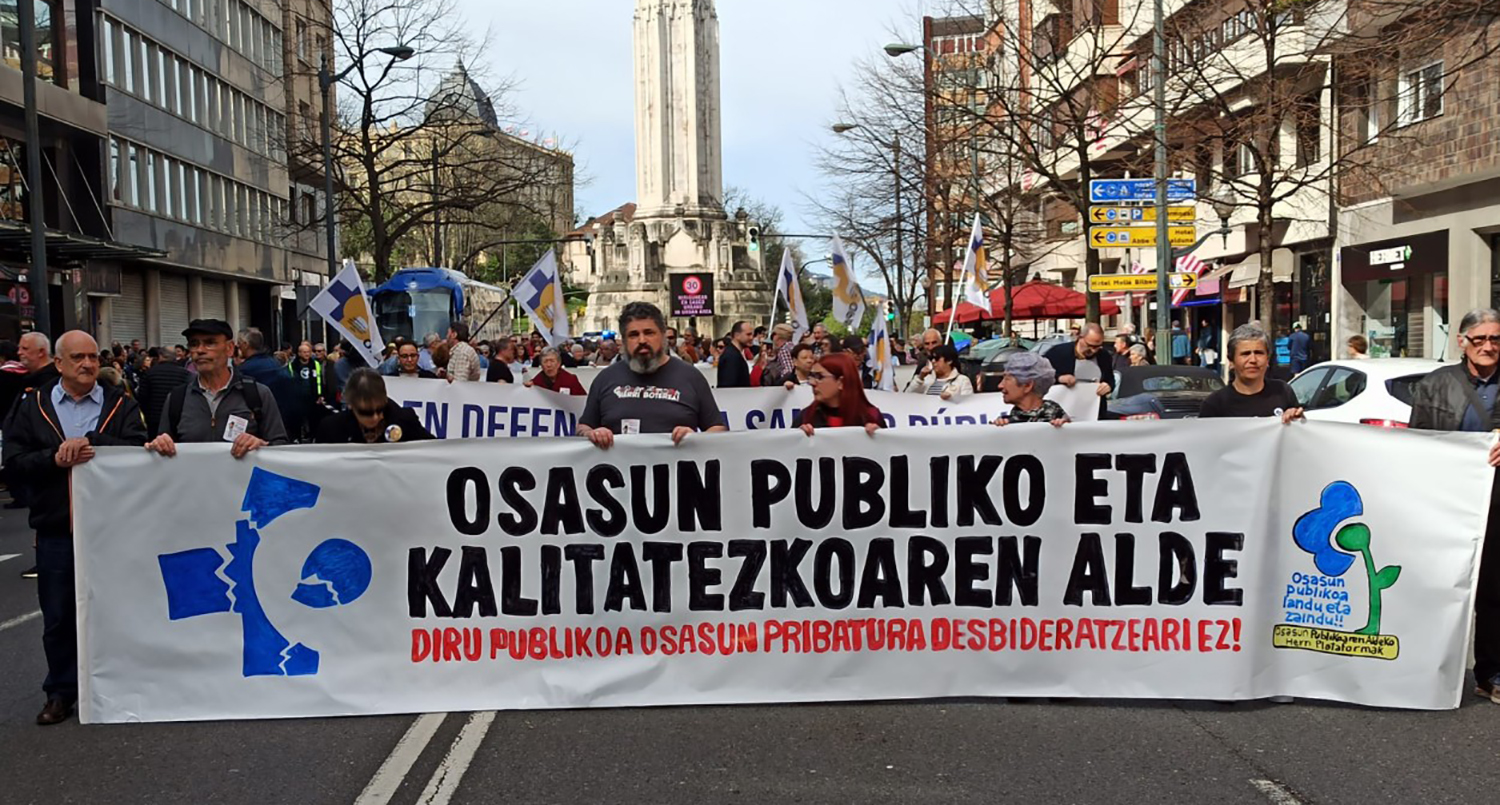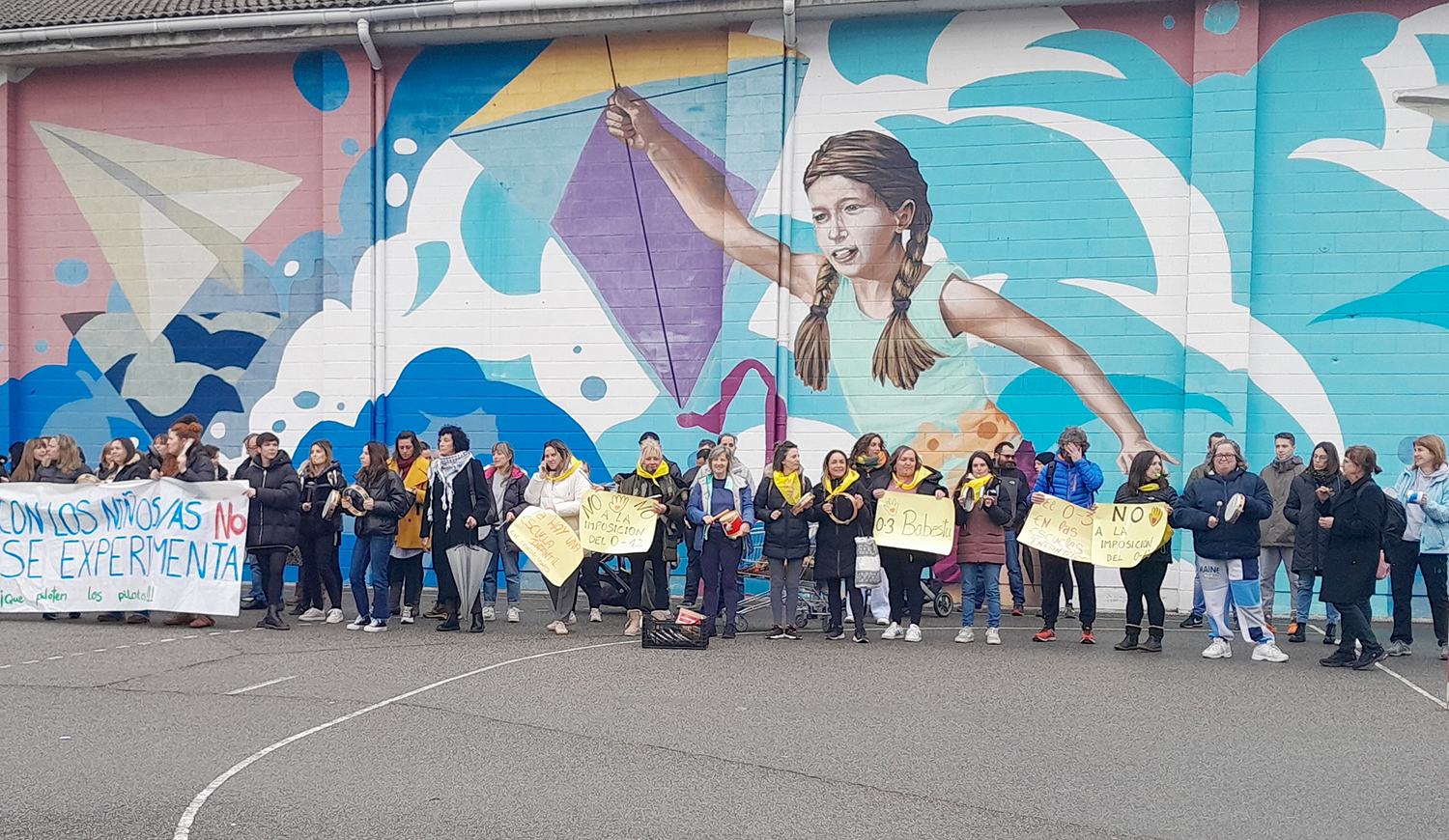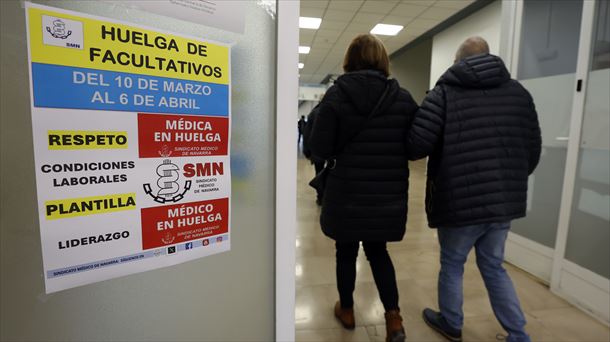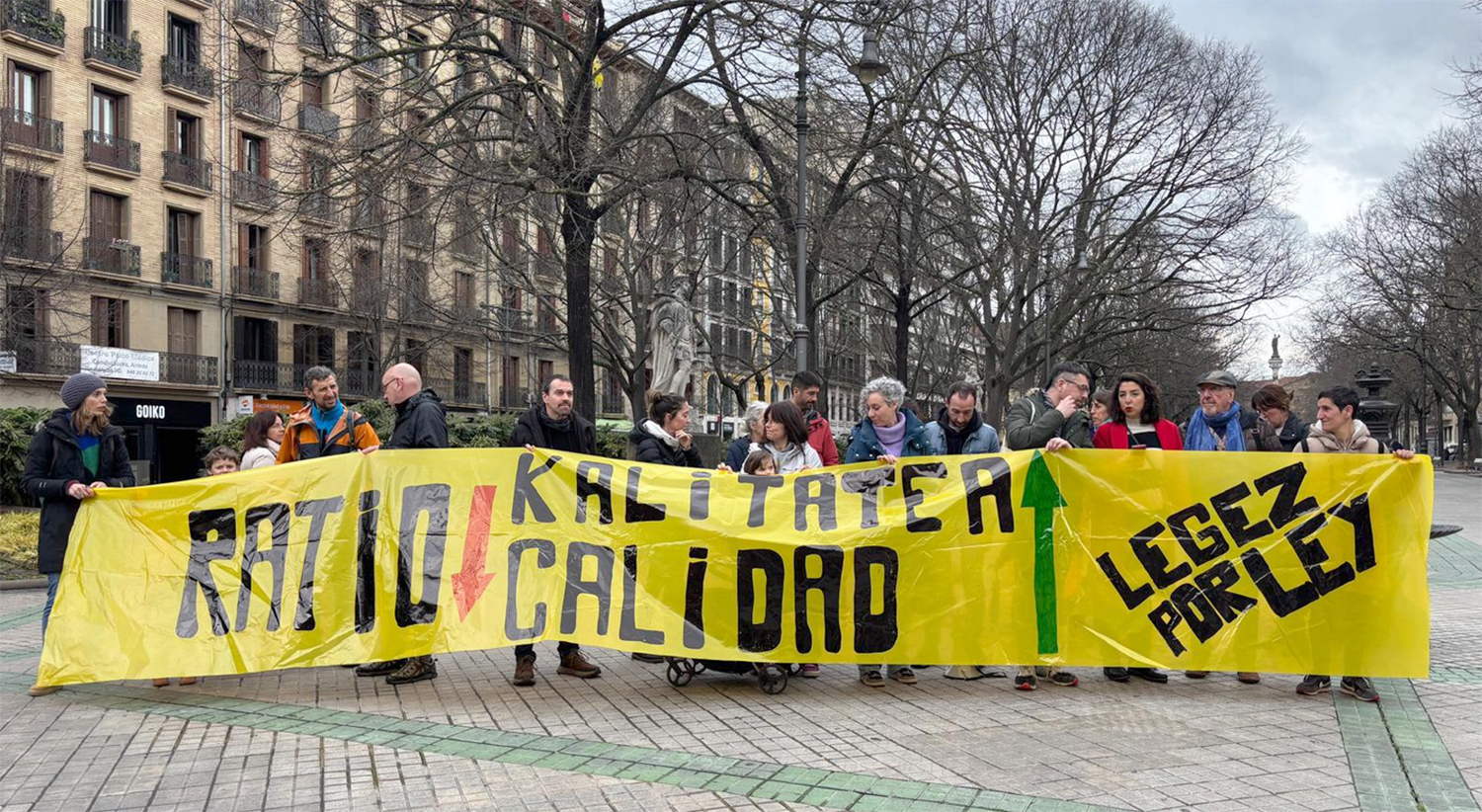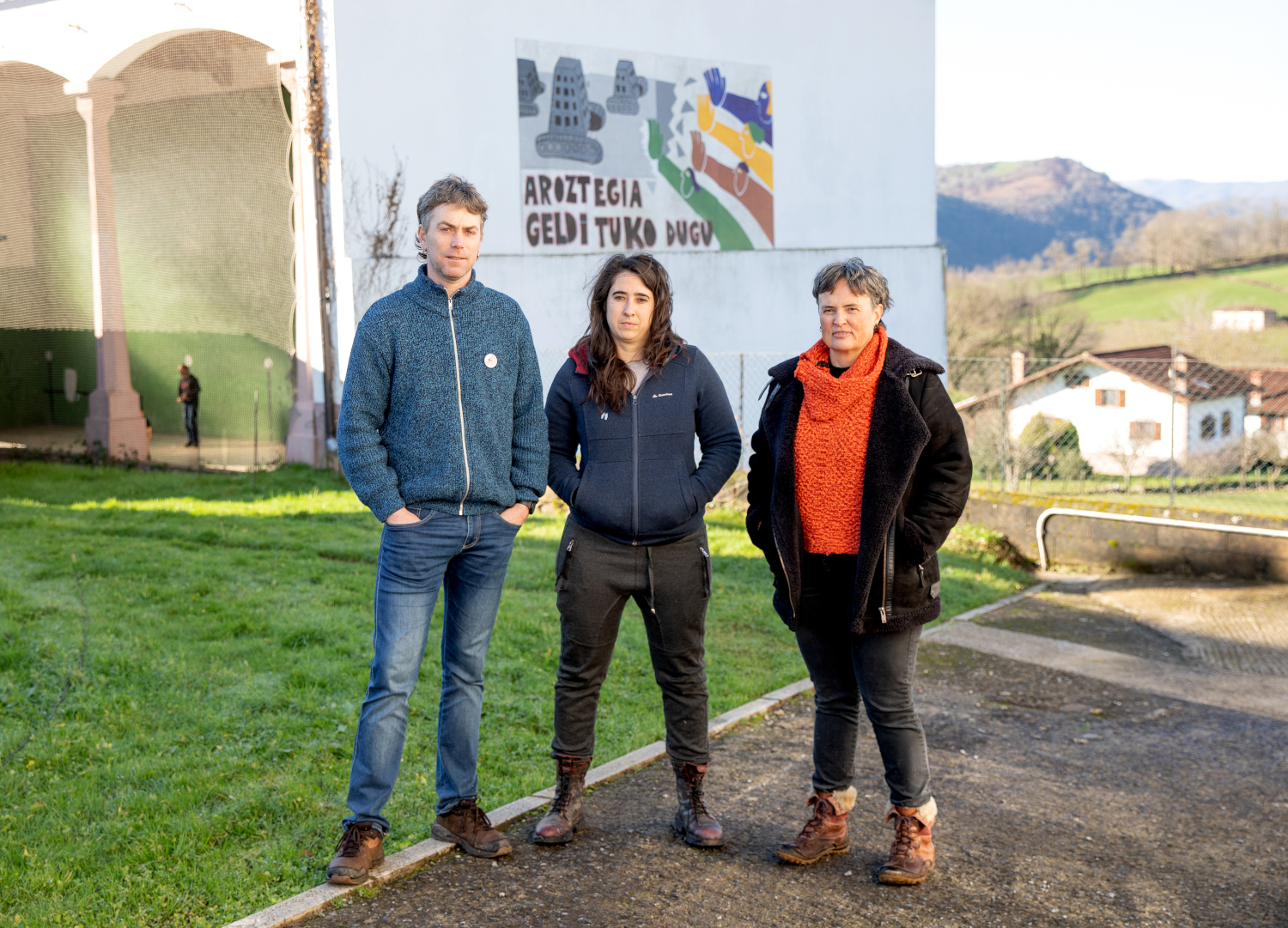The Foral Parliament confirms its commitment to the prevention of female genital mutilation
- On the occasion of the international day to eradicate the ablation, the World Medical Organization has warned of the presence of 4,000 Navarre women from countries where this illegal practice is carried out. All the parliamentary groups have praised the Community work of this NGO and the reference protocol of the Government of Navarra.

“If I arrived from Senegal to Navarra and were not told that female genital mutilation was bad in the organization by the Doctors of the World, if there were daughters I would have mutilated it,” says Farmata Watt, current worker of this NGO. Knowing that he had been ablated and taught from a very young age that he was “good”, it is no wonder. Yours is not an isolated case, especially among immigrants from some ethnic groups who come from Africa to Europe. In fact, the family's travels to their hometown are intended for their daughters to cut the clitoris or sew the vagina. The origin of tradition is unknown and probably different in each culture, but the reason is clear: “Control of women’s sexuality”.
This was explained by Farmata Watt, together with his colleagues Amaia García and Fatima Djarra, on Wednesday in the Parliament of Navarra on the occasion of the international day for the eradication of female genital mutilation. Doctors of the World started working on this problem in Navarra in 2008. During these fifteen years, through the support received from the Foral Government, a reference protocol has been created and two associations have been formed: Flor de Africa, the only female at the state level and Hapi, the male.
“At first many men said we couldn’t be alone and it was very positive to see Hapi born from the African Flower model,” Watt said. “It is essential to work with men through new masculinities. Because if they decide not to mutilate their daughter, it is not done.”
In any case, the risk of mortality is high and in the long term can cause serious problems such as sexual illness, inability to keep orgasms, sterility, urinary infections, etc. But not to mutilate also has negative consequences in many original ethnicities: “You will not be considered a clean and dignified woman,” Watt said. “No information is considered. Information is power.”
However, ablation is prohibited by law in all countries, although in Africa “governments do not pursue enough,” Djarra said. It involves the loss of imprisonment from six to twelve years and the guardianship of the minor in the Spanish State. It must be borne in mind that many of the relatives left in their country of origin have an economic dependence on migrants and the Doctors of the World take advantage of this to prevent child ablation. In the words of the institution's spokesman: "After informing families, we give them a written commitment sheet in their mother tongue before going to the countries of origin to sign it. On paper he states that if his daughter becomes mutilated, the parents will be imprisoned. So who would send the money?”

Danger signs
Before the compromise letter, there is obviously a great deal of work on identifying girls in danger. Firstly, the country of origin can be used as a runway. Those cited by Watt are Senegal, Guinea Konakry, Guinea-Bissau, Nigeria or Egypt. It has to be said that 27 of the 30 countries that mutilate female genitals are in Africa. In total, it is estimated that about 200 million live women have suffered ablation, of which some 180,000 are in Europe. Based on the data, over the next decade, another 30 million women could run in the world.
The biggest exponent of this risk is that “a little girl tells that she goes on holiday to her parents’ country and is going to party,” Watt said. But this would be a very concrete situation. The most common way to turn the alarms on is for the mother to be mutilated. But oftentimes ablation is less obvious and gynecologists are not able to recognize it easily. “In this sense, training is fundamental to be able to relate the origin of women with the health problems they may present.”
Unfortunately, on many occasions, due to lack of knowledge, the victims do not see a cause-effect relationship between ablation and health problems. In addition, “he may not be told for fear.” Therefore, the members of the World Forum stressed that the training of health personnel is “very important”, especially “working empathy not to criminalize the culture of origin of the mutilated woman, so that the patient is not ashamed”.
In short, the change of mentality can only occur through community work. “In Catalonia they created a protocol, but those responsible for implementing it were the Mossos,” said Amaia García. The protocol caused problems for immigrants with papers. In Navarre, however, the parliament and civil society are at hand in the eradication of female genital mutilation, and all parties demonstrated their continuity in the recognition of the Doctors of the World.
Itxaron zerrendak gutxitzeko Osasunbideak hartutako estrategiak gaitzetsi ditu Plataformak
Mahai Orokorreko sindikatuek salatu dute Gobernuak utzikeriaz jokatu duela ordezkaritza sindikalarekin negoziatzerakoan, horren adibidea da Estatutu berriaren negoziazioan ezarri duen blokeoa. Gobernua Mahai Orokorrean gai horiek guztiak negoziatzera esertzeko ahalegin ugari eta... [+]
Haurreskolara beharrean, 0-3 urte bitarteko umea zuzenean ikastetxera bidaltzea, Haur eta Lehen Hezkuntza osoa (12 urtera arte) hartzen dituen zentro berera. Hori da Nafarroako Hezkuntza Sailak Burlatako Hilarion Eslava ikastetxean martxan jarriko duen proiektu pilotua eta... [+]
Maite Nosti diputatuak kargua utzi du alderdiarekin izandako desadostasunengatik, eta horrek kide bakar batekin utzi du alderdi faxista, talde mistoan sartzera behartuz.
Astelehenean abiatu da sindikatuak deitutako greba eta apirilaren 6 arte luzatuko da. Lan-gainkarga salatu eta baldintzak hobetzeko eskatu dute, baita mediku egoiliarrei karrera profesionala aitortzea ere.
33/2013 Foru Legeari Xedapen gehigarri bat gehitu zaio datozen aldaketak gauzatu ahal izateko, eta horren bidez ahalbidetzen da “erregimen frankistaren garaipenaren gorespenezkoak gertatzen diren zati sinbolikoak erretiratzea eta kupularen barnealdeko margolanak... [+]
Geroa Baiko lehendakari eta Nafarroako lehendakariorde izandakoa enpresa bati 2,6 milioi euroko diru-laguntzak ustez modu irregularrean emateagatik zegoen auzipetuta, Davalor auzia deiturikoan. Nafarroako Probintzia Auzitegiak erabaki du auzia behin betiko artxibatzea, legalki... [+]
Seme-alabek eskolan dituzten ratioekin kezkatuta, Arartekoari kexa helarazi zion guraso talde batek, eta orain zuzenean Parlamentuari egin diote eskaera, “legez berma dadin gure seme-alaben hezkuntzaren kalitatean oinarrizkoa den neurria, unean uneko aurrekontuez edo... [+]
Nafarroako Gobernuak ofizialki aitortu ditu gure lurraldean giza eskubideen urraketa larriak jasan zituzten Estatuaren indarkeriaren beste zazpi biktima. Horien artean, hitzez hitz “motibazio politikoko biktima gisa” aitortzen ditu Patxi Erdozain, Eneko Compains,... [+]
11 doctors in health care earn 230,000 euros each year, one of the practices 18,000 euros
This Thursday, EH Bila asked the Government of Navarre to investigate and correct this situation in the plenary session of the Parliament of Navarre. The UPN and the PP have joined the... [+]
Ilbeltzeko igande goiz batez jo dugu Baztanera. Eguzkiak oraindik ez du Lekarozko plaza argitu; bertan elkartu gara Garbiñe Elizegi Narbarte, Itziar Torres Letona eta Ernesto Prat Urzainkirekin. Itzaletan hotz egiten du eta umorez goxatu dugu lehen agurra, hogei urtean... [+]











